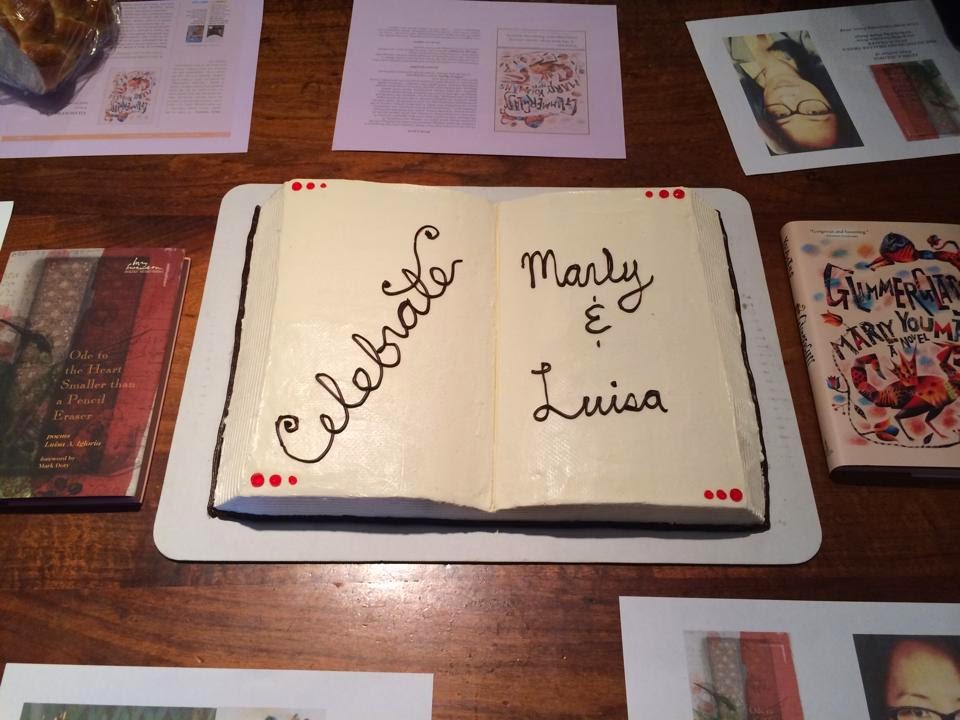 |
| Just out from Mercer-- art by Clive Hicks-Jenkins and design by Mary-Frances Glover Burt |
Currently I'm perched on a mountaintop in lovely Cullowhee, North Carolina, where I moved at thirteen, and where family still lives in the realm of Blue Ridge and mist and hummingbirds. I'll be reading from Glimmerglass at the Barnes and Noble in Athens, Georgia on the 16th at 7:00 p.m with longtime friend Philip Lee Williams.
Visit me elsewhere: six poems
- Paul Digby reads "The Wish for Roses" A poem inspired by Fredric Koeppel's lovely, lost aunt. Doesn't Paul have a gorgeous reading voice? And oh, that ominous background...
- I read "The Exile's Track." Video/sound by Paul Digby. Very much a Southerner's poem about the doom of living in the polar lands and lake-effect snows of upstate New York.
- I read "The Nesting Doll." Video/sound by Paul Digby. Adventures of a nesting doll in the sometimes demonic world. Sestina.
- I read "The Birthday Roses." Video/sound by Paul Digby. What are birthday roses?
- I read "In Extremis." Video/sound by Paul Digby. Written about a metaphysical "knowing" when my eldest child was in the hospital with meningitis.
- I read "A Fire in Ice." Video/sound by Paul Digby. Couplets. A riposte to Billy Collins, when he was impertinent enough to think he could take off Emily Dickinson's clothes! And then tell...
Glimmerglass with frangipani
Glimmerglass arrives at Margo Lanagan's house. Glimmerglass with lemon-scented gums. Glimmerglass with frangipani. Glimmerglass with bricks. Evidently it goes well with everything!














